The most unusually cold and wet weather ever in autumn 2023 hit British agriculture hard. The island nation suffered the wettest 18 months in known history in 2023-24, leaving the land waterlogged and some farms completely submerged.
The impact on crops has been catastrophic. Cereals, fruit and vegetables have been affected. The wheat harvest was 21 percent lower than last year and British vineyards saw up to 75 percent fewer grapes. The UK government is blocking aid, even though earmarked money is available. Many farmers now risk bankruptcy. Such harvests have been witnessed throughout Europe, and will soon push food prices even higher.
Britain is enduring its second-worst harvest since records began in 1983, and the 2023/2024 winter was the wettest in almost 200 years. A record rainy and abnormally cool spring and early summer, as well as a record cold summer and equally extremely rainy autumn, have ruined crops of everything from wheat to grapes [see, among other things, “Changed jet streams: Historic cold and precipitation in the UK and worldwide – System media plays down and misleads” in NyT no. 10/2024]. On October 11, the climate alarmist system media Euronews was forced to describe the new British climate conditions with the words “almost relentlessly cold and damp weather”.
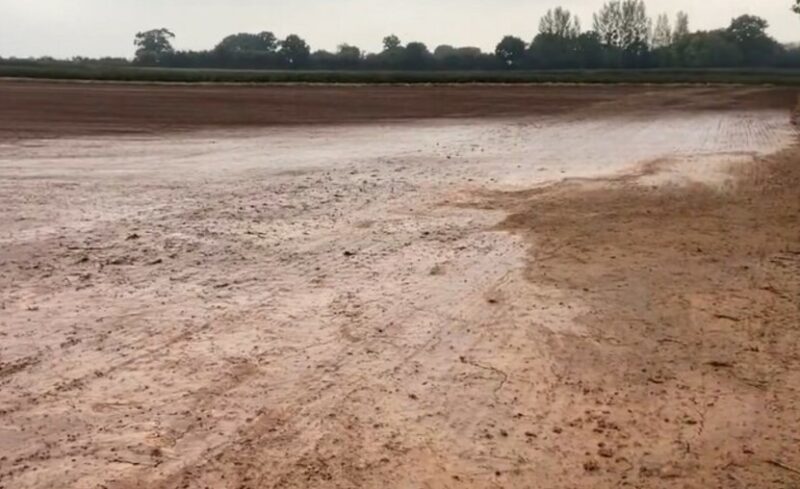
Flooded field in the village of Dilwyn, Herefordshire. Boycefield Farm received over 100 millimeters of rain in one day on 23 September. The British government has estimated that 5.5 million properties in England have been affected by flooding, following the wettest 18 months in the island nation’s known history. Photo: Farmers Guardian
British farmers, who are already on their knees due to more and more impositions and hindering regulations linked to various “climate goals”, are now in many cases on the verge of ruin. As many British farms have already been forced into bankruptcy, not least in the last ten years, the overall situation can only be described as very serious – something that in the long term threatens both British and European food security.
Climate lies cost money
The cold and wet weather, which continued almost uninterrupted from the autumn of 2023 to the spring and early summer of this year, followed by a record cold summer and an even wetter autumn, has hit the until recently fast-growing British wine industry particularly hard. Winegrowers in some parts of the UK have seen their grape harvests fall by up to 75 per cent. Vineyards have existed in Great Britain since Roman times, but the climate narrative of “global warming” that has been drummed up for many years has made many wine producers not only expand their operations, but also dare to invest in more temperature-sensitive grapes. This misinformation has now had a horrific effect.
More serious for food security is that wheat production has decreased by a fifth. The record poor harvest this year yielded only 11.1 million tons of wheat, which is nearly 3 million tons less than in 2023 and a 21 percent drop from the five-year average. This forces the UK into even greater import dependence.
Winter crops were directly and worst affected by the weather, while spring crops suffered mainly from late planting – indirectly due to the same weather.
Everything affected
Rapeseed production also fell by over 30 percent, the lowest figure in 40 years. It doesn’t even cover half of Britain’s own consumption and will further exacerbate the supply and therefore prices of canola oil. In large parts of Europe and the world, the price of cooking oil is one of the most noticeable consequences of rampant food inflation. The disaster harvest is again due to wet weather which mainly affected planting across large parts of the island nation.
Another example is autumn barley, which this year saw a 26 percent lower harvest. Oats and many other crops also saw record poor harvests this year. The list is too long to discuss here.
According to its own statement, the non-profit research and analysis organization Energy and Climate Intelligence Unit (ECIU) estimates that the failure to grow led to a loss of over the equivalent of $800 000 000 for Great Britain’s farmers, largely due to the fact that the production of key crops fell by a total of 15 percent. However, there are many, not least the affected farmers themselves, who claim that the financial losses are significantly greater, as well as that “only” 15 percent can be seen as “pure wishful thinking”.
The EU has also reported a sharp decline in aggregate agricultural yields, the worst in Europe in at least a decade. Overall, harvests are so much worse in Europe that it will not only drive up already high food prices, but will also create an imbalance in the food production chain. It is often a long way between the field and ready-made food, which many consume, which will lead to noticeable shortages of certain products further down the chain.
Pumpkin growers despair
A family that has grown pumpkins for generations says cold and wet weather during the spring and summer has hampered their yields. The company Trusley Pumpkin and Potato Patch at Goldhurst Farm near Derby in Derbyshire, England, as the name suggests, grows potatoes and pumpkins. They tell the British media that in the past they organized harvest parties and “Halloween picking” of pumpkins, but that it did not happen this year. Instead of the upwards of 15,000 pumpkins they usually produce and sell, there were 1,000-1,500, but many discolored and deformed.
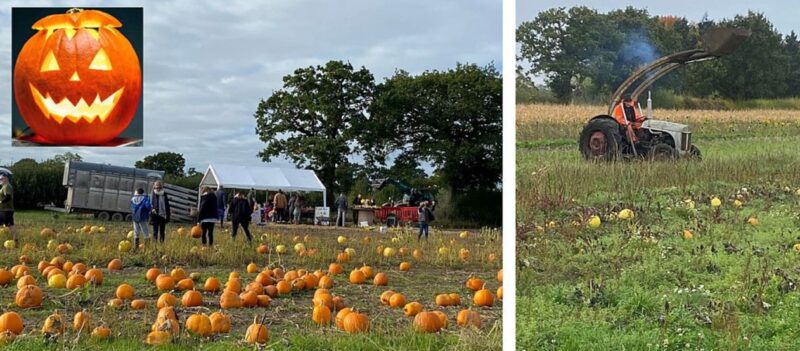
No pumpkins for Halloween. Several UK pumpkin growers are reporting record losses of 90 per cent or more against normal, which meant many Halloween revelers were left without the coveted decoration. Shown here is Goldhurst Farm in Ashbourne, a market town in the Derbyshire Dales district of Derbyshire, England. In 2023 (left), people flocked to their annual harvest market to pick and buy pumpkins. In 2024 (t.h.) their harvest was only 5-10 percent of normal and the usual influx of people was absent. Pale and rotten pumpkins had to return to the soil instead. Photo: Trusley Pumpkin and Potato Patch Goldhurst Farm
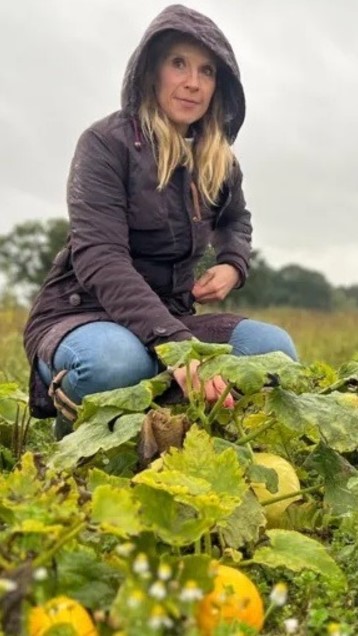
‘I can’t remember a year when it was this bad.’ Catherine Ferris, who works at Goldhurst Farm, in an interview with the BBC in October
Even the corn and potatoes that the farm grows have been affected by bad weather in the past year.
“Everything depends on the weather,” says Catherine Ferris, who works on the farm.
She added: “Mother Nature has not been very kind to us this year. The ground when we sowed the seed was cold and wet and we had to replant probably three weeks later. […] We spent twice as much money on seed and it just kept raining. But it’s just as bad with all our crops, it’s not just the pumpkins.”
Her father, Haydn Ferris, who is 76 years old and has worked on the farm most of his life, begins to despair after two exceptionally bad years.
“I have lost the desire to continue, to be completely honest. It’s just too devilish!”
Lies and narrative
The persistent cold and wet conditions since last autumn delayed the planting of a range of crops and severely hampered growth, forcing a costly switch to less productive but more resilient spring crops. Frost and torrential rain then knocked out parts of the crops, while the extreme record humidity led to mold and disease.
Because grapes are extra sensitive to both cold and moisture, vineyards have been hit the hardest. The grape harvest in south-west Britain in particular has therefore been so seriously impaired that it qualifies as “catastrophic”. However, it looks the same or even worse for other crops, such as pumpkins (see above).
The ECIU, which has the ear of the UK government, nevertheless describes the problem for food production and food safety in both the UK and Europe as “extreme heat” and “global warming”. This despite the fact that the reality and the reason for the losses of British agriculture is the exact opposite – an abnormal cold and a record rainy season with, in several cases, historic floods as a result. The climate alarmists thus grossly distort facts and reality to make it fit in with their scientifically completely reprehensible climate narrative.
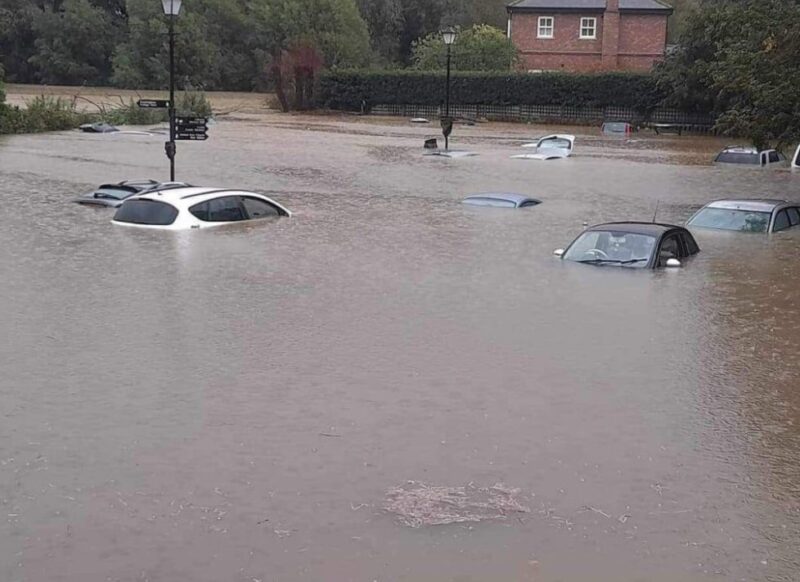
Flooding in Suffolk following heavy rain from Storm Babet which hit the UK in the second half of October. Local media such as the Suffolk News reported on October 21 that firefighters and emergency services were overwhelmed by hundreds of emergency calls in a short period of time. In several cases, local farmers stepped in and helped with evacuations, as tractors can handle significantly higher water levels than other vehicles. Photo: Suffolk County Council
Obscures reality
The British system media The Guardian reproduced in an interview on October 10 Tom Lancaster, who is a soil, food and agriculture analyst for the climate organization ECIU.
Lancaster explained: “This year’s harvest was a shock, and climate change is to blame. While consumers have been partially compensated by food imports covering the losses, Britain’s farmers have been hit by the second-worst harvest ever.” The climate alarmist repeated his questionable claims.
“It is clear that climate change is the biggest threat to Britain’s food supply. And these effects will only get worse until we reduce our greenhouse gas emissions.”
Lancaster is also calling on the UK government – which through intermediaries sponsors the ECIU – to use this month’s budget to support more “sustainable agriculture” in order to build resilience against the “extreme weather” that has hit the UK. The irony is that his organization is actually funded by the state to issue warnings about “global warming”.
Losing patience
British agriculture has been hit hard this year as a whole, with dramatically lower harvests and thus incomes. In addition, in the last ten years, Britain has seen one in five farms close down, which is not only a tragedy for the affected farmers but also a threat to national food security.
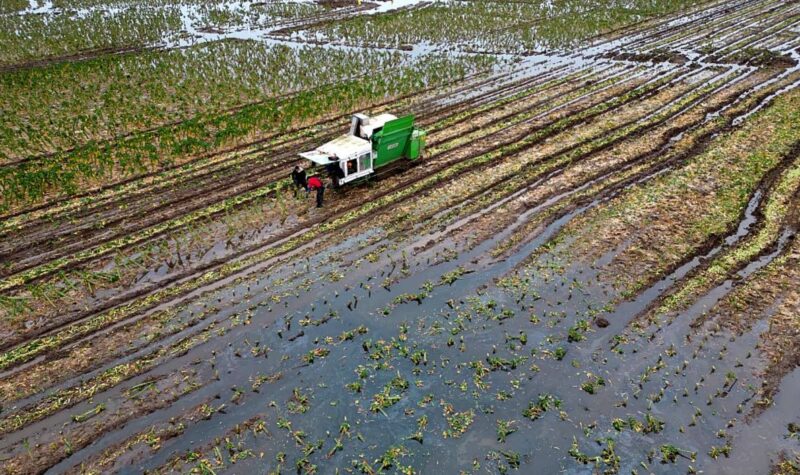
Destroyed harvest. Here is a desperate attempt by farmers to harvest Brussels sprouts in a flooded field in Lincolnshire in January earlier this year. Photo: Joe Giddens/PA Wire
This year’s disaster harvest now risks knocking out even more already hard-working British farmers. In addition, the record rainfall has created floods which in themselves bring difficulties in the form of hindered new sowing and water damage to agricultural properties. Despite all this, little or no help is offered by British authorities.
A local publication Sussex World reported on October 21 that this was happening despite earmarked money to help farmers affected by what has just happened:
“Farmers and industry leaders are starting to lose patience and become frustrated with this Government for holding Defra back, particularly when it comes to providing grant funding to support land recovery after floods.”
Defra is the British Department for Environment, Food & Rural Affairs, The Department for Environment, Food & Rural Affairs. The name of the ministry reflects their priorities, i.e. “environment” – which has been hijacked by the globalist climate agenda.
Reasons for concern
Despite the urgency and seriousness of the situation, only £2.1 million of the £50 million set aside in the Farming Recovery Fund to help the farmers most affected has been disbursed. Only 4 percent has thus benefited affected farmers, which means that the vast majority of affected farmers are still waiting for aid that they will probably never receive. It may be appropriate to recall here that the loss to UK farmers estimated by the ECIU and criticized as being grossly too low is almost 300 times greater than what has been paid out so far.
Many farmers who have farmed the land for generations now stand on the brink of ruin and risk being forced to sell their farms, adding to the around 20 percent of farms already closed in the UK in the last ten years alone. It doesn’t take an expert to understand the seriousness of one in five farms being shut down in such a short time, even though the previous harvests were good in relation to the disaster harvest this year.
As an individual event, it may perhaps be perceived as incompetence by Defra, but farmers point to a long-standing and clear pattern, where farmers and food production are constantly hampered and attacked in various ways. It also looks equally bad in all European countries, to varying degrees.
Farmers have every reason to be worried, but the public has even more reason. Without farmers there is no food and it is not the farmers with the knowledge, the tools and the land – no matter how small the land may be – who will be the ones who suffer the most when food shortages one day become a reality.
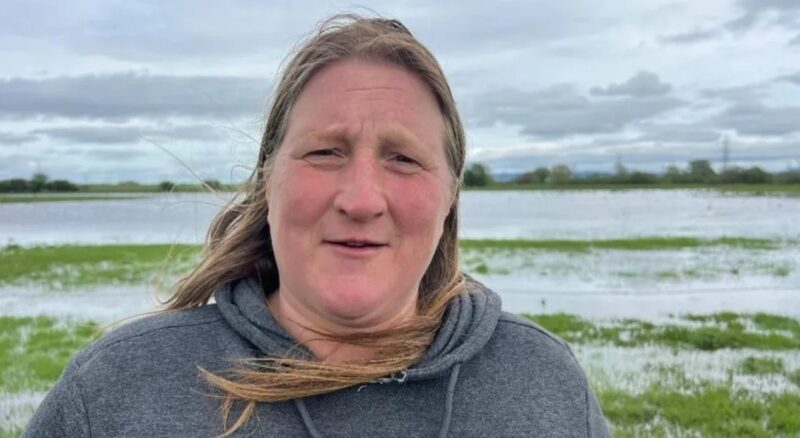
Big farmer Debbie Wilkins has repeatedly warned that continued extreme weather threatens British food production and food security. All in all, with serious floods in large parts of Europe this year, it also threatens European, Swedish and, by extension, the entire world’s food security. There will therefore soon be nowhere to import from. Still image: BBC
We will soon be publishing a revealing and comprehensive review of the Energy and Climate Intelligence Unit (ECIU) and the very influential globalist covert network they are part of.
Analysis: Food security threatened by extreme flooding, British farmers warn
Record rainfall [in Great Britain] in recent months has left fields with crops under water and the health of livestock at risk, which has increased the pressure on food producers,” according to the BBC, which has become known for heavily marketing the climate narrative.
They then quote a warning by the National Farmers Union (NFU), which represents British farmers in England and Wales: “The floods and extreme weather linked to climate change will undermine UK food production unless farmers get more help […] The NFU is calling on the Government to do more to compensate flooded farmers and support domestic food production.”
The NFU then added that “significantly reduced production” is to be expected this year. The BBC noted that the British government responded to the NFU’s call, saying that “it is working to expand the already existing compensation system”.
The interesting thing is that the BBC’s reporting took place in April this year and despite the fact that the compensation system both existed, is well-financed and was to be “expanded” (if we are to believe the British authorities), the farmers have still not received even close to the help they need.
Farmers sound the alarm
Debbie Wilkins is a farmer with extensive production of dairy, beef and grain products. She owns 900 hectares of land on her farm Norton Court Farm, near Gloucester in western England, which during the year was largely flooded. Wilkins, whose family has farmed there since 1936, told the BBC that the land used to flood every six years when she was young, but that they had floods three times last year and then six times already in the first quarter of this year! It has no historical precedent and the farmers – despite generations of experience and unique knowledge – are paralyzed.
The big farmer told us that the unprecedented floods were so serious that the cattle could not even graze and remarked sarcastically, but with great seriousness: “Cattle don’t do very well under water.”
The floodwaters have destroyed the fodder for the livestock and existing stocks are being used up quickly. If the bad weather continues, farmer Wilkins will be forced to sell the cattle and jobs on the farm will have to be drastically cut. That in itself is something that affects the already strained and declining UK economy.
Wilkins emphatically warned that if the extreme weather continued into next year, domestic food production in the UK and Europe would be threatened – with sharply increased prices for consumers.
Climate = Magnetic field
The BBC is a British system media that has become notorious for being an extreme climate alarmist with outlandish claims that the world will soon perish from heat. But “global warming” is hardly heard anymore from the establishment, despite the fact that the globalists’ climate war against humanity began in earnest on July 27, 2023, when UN chief António Guterres in one fell swoop raised the climate scare propaganda to a new bizarre level. He proclaimed that we had entered the era of “global boiling”, which was much worse than the “old” era of “global warming”.
Just a month or so after his startling statement – in the autumn of 2023 – cold weather and exceptional rainfall began to plague Britain, Europe and much of the world. The concept of “global boiling” and even the milder “global warming” was also subsequently avoided by the establishment and its media, and has been changed to “climate change” and now “climate collapse”.
Interestingly enough, our unique research contacts predicted the last, something we unfortunately could not publish as they are anonymous and they could not substantiate it with anything other than “they know it” based on their unique position and insight into climate issues. But they were right again and it also means that we can now reproduce what they based this prediction on. They firmly claim that the sun completely controls our climate, which has been proven in more and more recent research reports, and that de facto increasingly extreme climate changes are due to the earth’s rapidly weakening magnetic field. They have always claimed that “climate change” is a code word for changes in our magnetic field, something that insiders in the establishment know very well but hide. Therefore, our sources could predict that in 2024 or 2025 (their words) the establishment and its media would introduce the word “climate collapse” (or similar), as it is a code word for the collapse of the magnetic field that our sources claim is imminent. They also warn us that “what we have seen so far is nothing compared to what we will experience in the coming years”.


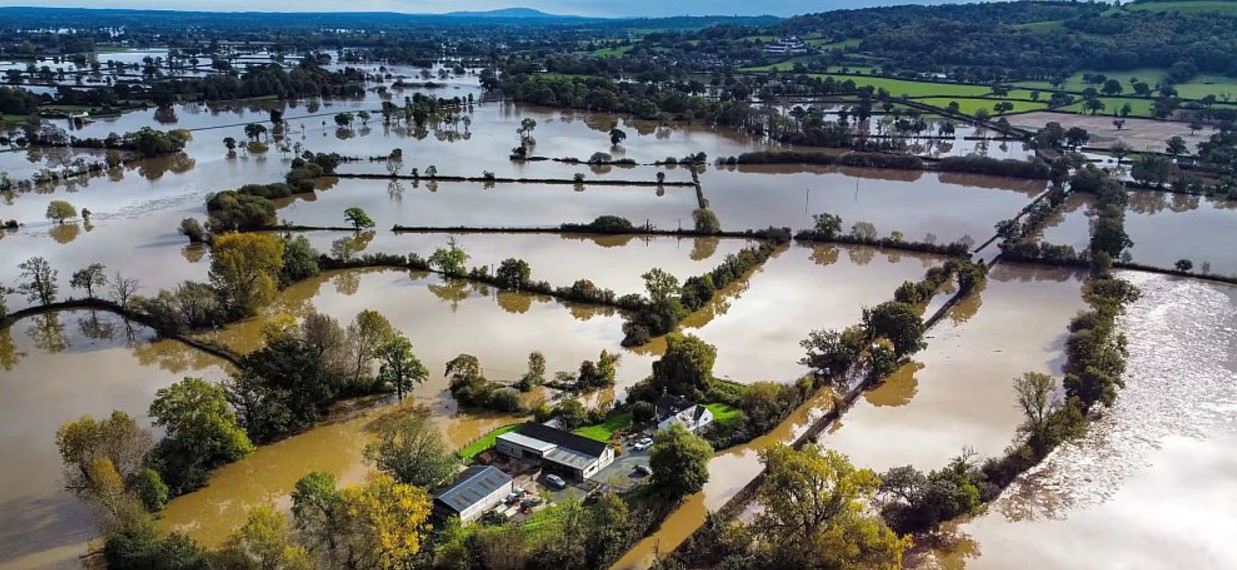






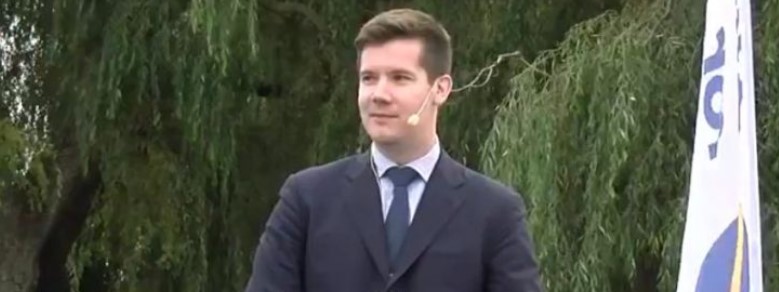



No comments.
By submitting a comment you grant Free West Media a perpetual license to reproduce your words and name/web site in attribution. Inappropriate and irrelevant comments will be removed at an admin’s discretion. Your email is used for verification purposes only, it will never be shared.